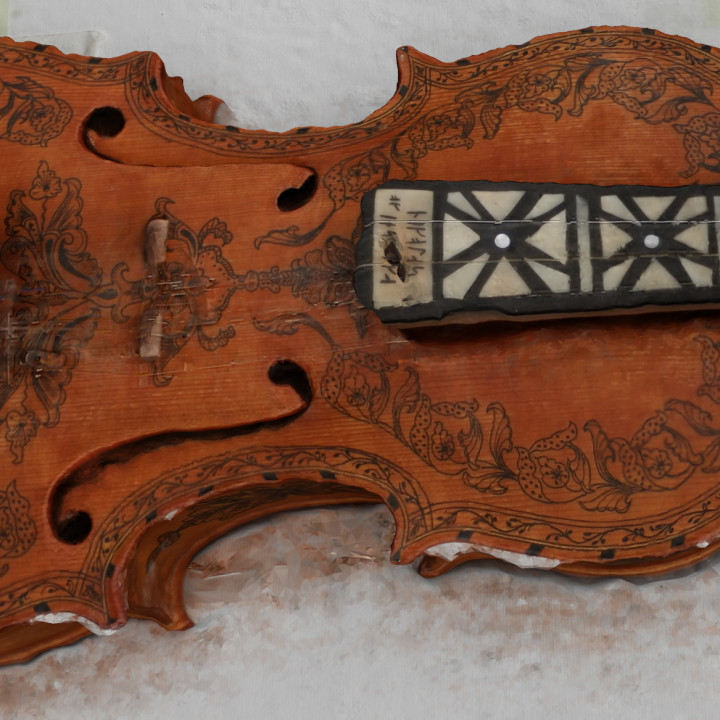
Hardanger fiddle
myminifactory
This highly decorative instrument is a Norwegian Hardanger fiddle, made by my father, that he played at my wedding. All photogrammetry files are linked. I was born and grew up in Norway and the folk music has a special place in the culture of the country, with music being an essential part of the 17. Mai celebrations. During these festivities children process through the streets, often playing music, whilst dressed in their traditional national dress, something my family also took part in whilst living there. This particular fiddle was made by my father, who took up violin making when he came back to the UK. The fiddle itself took my father five years to make and holds significant value to our family. The runes on the tail piece and fingerboard spell out both mine and my wife’s names and the fiddle itself shares the same wood as my wedding ring. Not only was this made by my father it was played as my wife and I made our way back up the aisle after saying our vows. We have recordings of this but the instrument itself is a physical reminder of that very special day and it was clear in every bow stroke the love that made both the instrument and the music. The highly decorative style of this Hardanger Fiddle, as well as having great sentimental meaning, sits well within the tradition of Norway’s fiddles. One theory for the elaborate style of decoration was that long winters enabled fiddle makers to devote time and effort into the overall style and decoration of each instrument. Whilst the winters here are not as dark as in the northlands the Cambridgeshire frosts provided the right atmosphere for this final flourish. Whilst much is known about the traditional violins, such as Stradivari and Guarneri, with drawings and plans available for some violins; the living tradition of making and playing Hardanger Fiddles is less well documented, although the instrument has found fame in the Lord of the Rings (The Rohan Fanfare). Many fiddles were destroyed by the Church during the 1800s, due to their association with the devil, meaning there are not many surviving older instruments within the public domain. Whilst the Norwegian museums have a website (digitalmuseum.no) which has c.250 entries for Hardanger Fiddles from museums around Norway; 2D pictures only tell half the story. 3D models of those instruments available digitally, would be more useful for scholars, players and makers alike. My father and myself have long held plans to travel Norway and her museums to scan the fiddles held within them. The system we have designed uses Raspberry-Pi cameras mounted on an arch, which itself is mounted on rails. The fiddle would be placed between the rails and the arched moved to allow the creation of a series of images for photogrammetry. The current 3D model was created using images taken on a digital camera (Olympus SZ14) and converted into a 3D model using Meshroom. We hope to be in a position to finally make the trip next year.
With this file you will be able to print Hardanger fiddle with your 3D printer. Click on the button and save the file on your computer to work, edit or customize your design. You can also find more 3D designs for printers on Hardanger fiddle.
